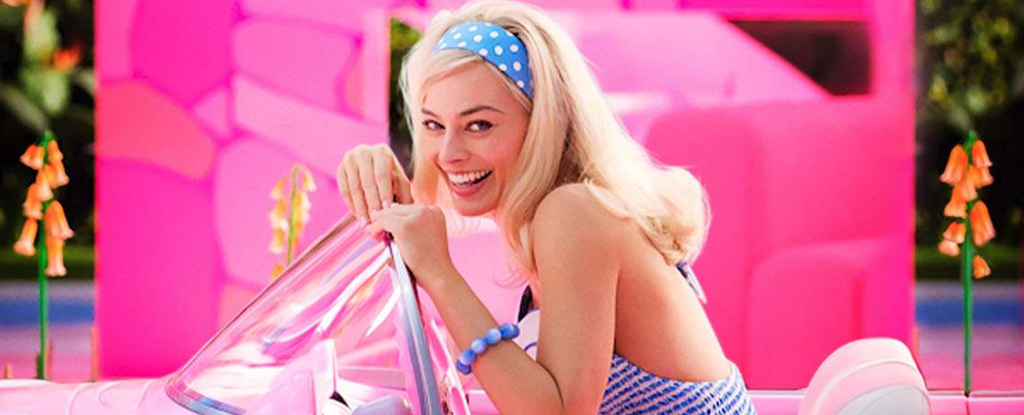Last year, health experts predicted the ‘mic drop’ joke in the final scene of the blockbuster Barbie movie would have a serious real-world impact, prompting viewers to seek reproductive healthcare they might’ve needed, put off, or perhaps never thought about.
Now it seems they were right, with a new study finding a spike in related web searches following the film’s release.
For those who haven’t seen the movie, Eva Sénéchal, a psychology researcher at McGill University in Montreal, and her colleagues, who conducted the new analysis of internet search trends, explain how the final line in the Barbie film may have done more than just make audiences laugh.
“In the film’s final scene, after deciding to leave Barbieland for the real world, Barbie enthusiastically tells a receptionist, “I’m here to see my gynecologist,” a joke that could be based either on her supposed lack of genitals or her evident excitement for care many women find unpleasant.” Sénéchal and colleagues write in their paper.
“We hypothesized that this final line may have spurred public interest in gynecologic care.”
The researchers charted weekly internet searches in the US following Barbie’s release, looking for 34 terms ranging from questions about what gynecologists do to more general searches of “gynecologist near me”, “make a doctor’s appointment”, and “pap smear”.
There was a positive spike in searches relating specifically to gynecologists, with questions such as “Why see a gynecologist?” and “Do I need a gynecologist?” more than doubling in the three months following the film’s release in July 2023 compared to the year prior.
However, looking up information about gynecologists is only the first step in seeking that kind of specialist healthcare. The study didn’t look at other data that may have captured whether movie-watchers were prompted to make or attend appointments, but trends in other search terms suggest not.
“There were no changes in searches for gynecologist appointments, suggesting that searches for information about gynecologists did not translate to searches for new gynecologic care,” Sénéchal and colleagues write.
“Therefore, it remains unclear whether a ‘Barbie effect’ in awareness would translate to improved measurable health outcomes.”
But it’s not out of the question; it has happened before.
In 2013, when actress Angelina Jolie went public with her decision to undergo a double mastectomy after testing positive for an inherited breast cancer gene, referrals for genetic counseling and testing in the UK more than doubled – a trend dubbed the ‘Angelina Jolie effect‘.
The Barbie film could have also had a wider impact on body image, just like the dolls themselves. Research shows that Barbie dolls, which traditionally have represented extreme and unrealistic body shapes, can influence young girls’ ideas about body image and eating habits, although the results are a mixed bag.
“We know that children learn by observing, absorbing, and imitating the things they see around them, and that their early ideas about weight and appearance are shaped by their family, their peers, and the media,” Zali Yager, a body image researcher, wrote for Women’s Health Agenda after seeing the film in July 2023.
But it’s difficult to tease apart the influence of those three factors – one’s family, friends and (social) media – on a person’s perception of themselves, or their healthcare-seeking behaviors, in the case of this new analysis.
“There’s so much of the context that we are missing in these studies,” clinical health psychologist Jennifer Webb, of the University of North Carolina at Charlotte, told Nature in a July 2023 interview, referring to the mixed results of research studies on Barbie’s influence on body image and self-esteem among young girls.
“We don’t know about the other aspects of the children’s social environment, whether in the immediate home environment, at school or other activities.”
The same is true of Sénéchal and colleagues’ new analysis: Trends in internet searches give us only a snapshot of people’s lives, and tell us nothing about who those anonymous people are, their age or their health.
Although we don’t have the data to show it, some people might have been inspired to seek out reproductive healthcare for themselves because watching Barbie attend her first gynecologist appointment “normalizes the experience,” physician and health policy researcher Leana Wen told CNN last year.
“It solidifies the understanding that reproductive health is an integral part of overall health.”
The research has been published in JAMA Network Open.





